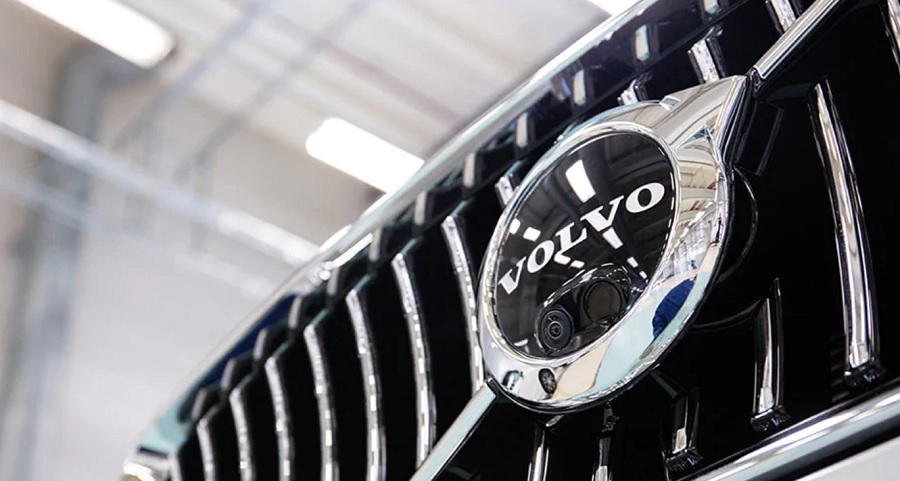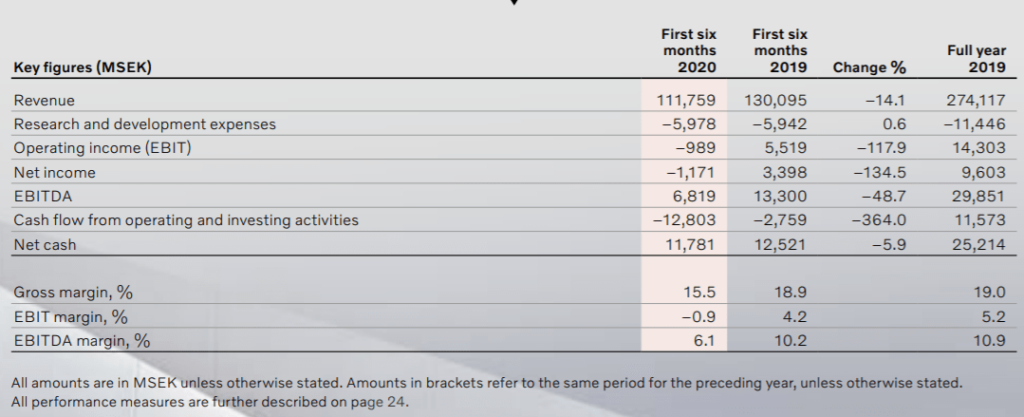Volvo Cars reports financial result for the first half of 2020, which was strongly affected by the Covid-19 pandemic and its impact on the global economy.

Volvo Cars expects a recovery in the second half of the year as demand for cars normalizes.
The company made an operating loss of SEK 989 million during the first six months of 2020, when sales fell by 14.1 percent to SEK 111.8 billion.
Gained market share in China
Although global sales fell in absolute terms during the first half of the year, Volvo Cars gained market share in China, the USA and Europe, where Germany was one of the markets that performed strongly. The company also saw a strong increase, 79.8 percent, in demand for rechargeable plug-in hybrids under the Recharge brand, as well as a large increase in consumers’ interest in shopping online.
Strong second quarter recovery
Volvo Cars’ sales of cars in China recovered during the second quarter and growth compensated for virtually the entire first quarter’s sales loss. During the first half of the year, the company’s sales in China fell by only 3.0 percent.
Sales in the United States also recovered during the second quarter and showed growth in June, but during the first six months sales fell by 13.7 percent compared with the same period last year.

Overall, the market for passenger cars in China fell by 26.0 percent during the first six months, while the United States and Europe fell by 24.0 and 38.1 percent respectively during the same period.
“The decline we saw during the first half of the year is temporary. We expect a strong recovery during the second half of the year and our range of rechargeable Recharge cars means that we are well positioned to meet the market trends we now see,” says Håkan Samuelsson, Volvo Cars’ CEO.
Global sales declined by 20.8 percent
During the first six months of 2020, Volvo Cars’ global sales fell by 20.8 percent to 269,962 cars as many governments encouraged people to stay at home or otherwise restrict mobility. This had a great impact on the activity and on the number of visitors in our showrooms.
The company took rapid, proactive action to mitigate the adverse effects of the pandemic in a safe and pragmatic manner, focusing on managing fixed costs and cash flow. In this way, Volvo Cars was able to protect both its staff and operations.
Production Disruption
The company’s factories were temporarily shut down and working hours were reduced with the support of government programs. After taking a number of safety precautions, the company was able to quickly reopen the factories and welcome employees back to a safe working environment. In total, the Torslanda factory in Sweden lost only 15 production days.
“The pandemic has strengthened us in our belief that our strategic ambitions are the right ones and that an accelerated restructuring of our business will lead to long-term growth. We will continue to invest in electrification, online sales and connected cars,” says Håkan Samuelsson.
Plug-in hybrid available on all Volvos
Volvo Cars is the only car manufacturer to offer a plug-in hybrid variant on all models in its product portfolio. Later this year, production of the XC40 P8 Recharge will also start, the company’s first all-electric model and the first in a series of all-electric cars that will be launched in the coming years.
“If the markets recover as expected, we see that sales volumes will return to the levels we saw during the second half of 2019 and it is our ambition to also return to the same profitability level and cash flow.”










